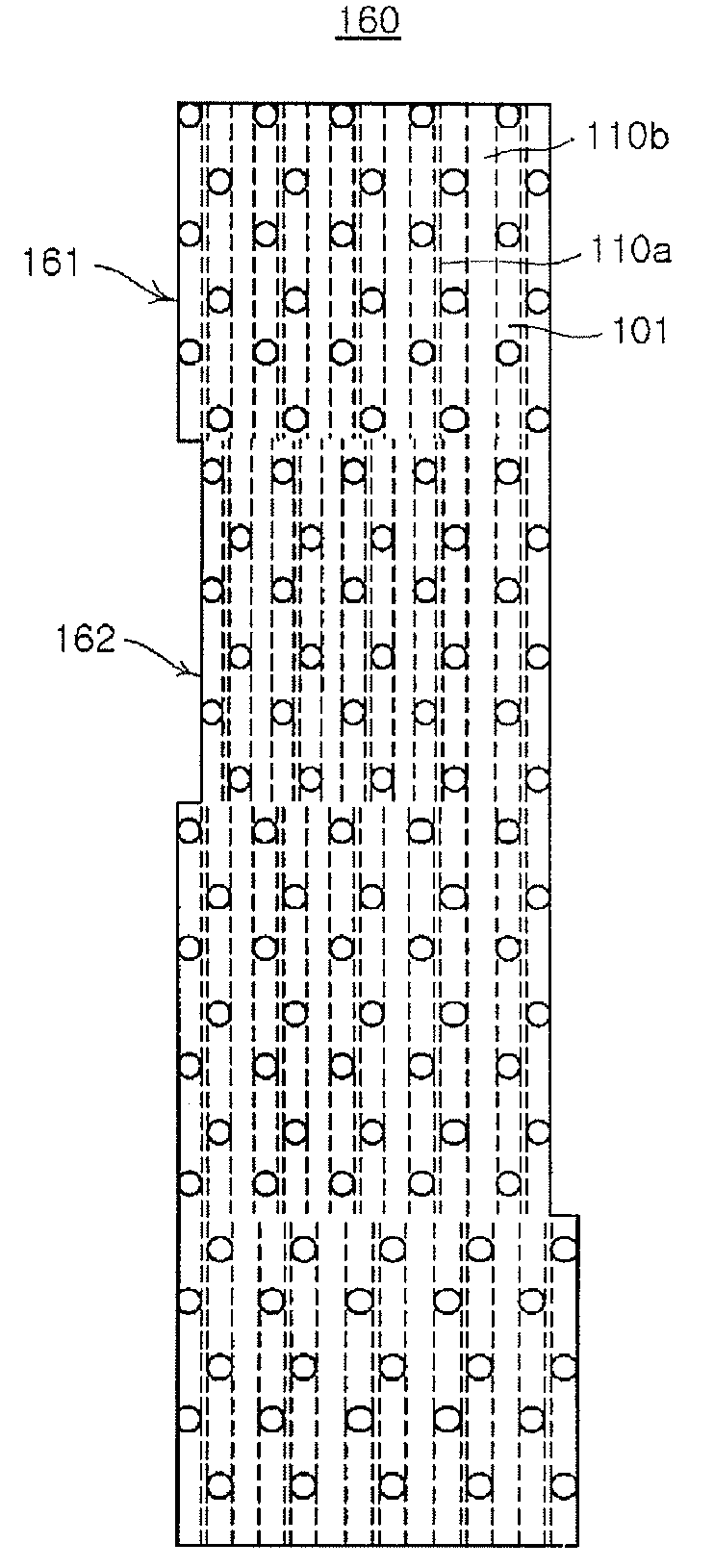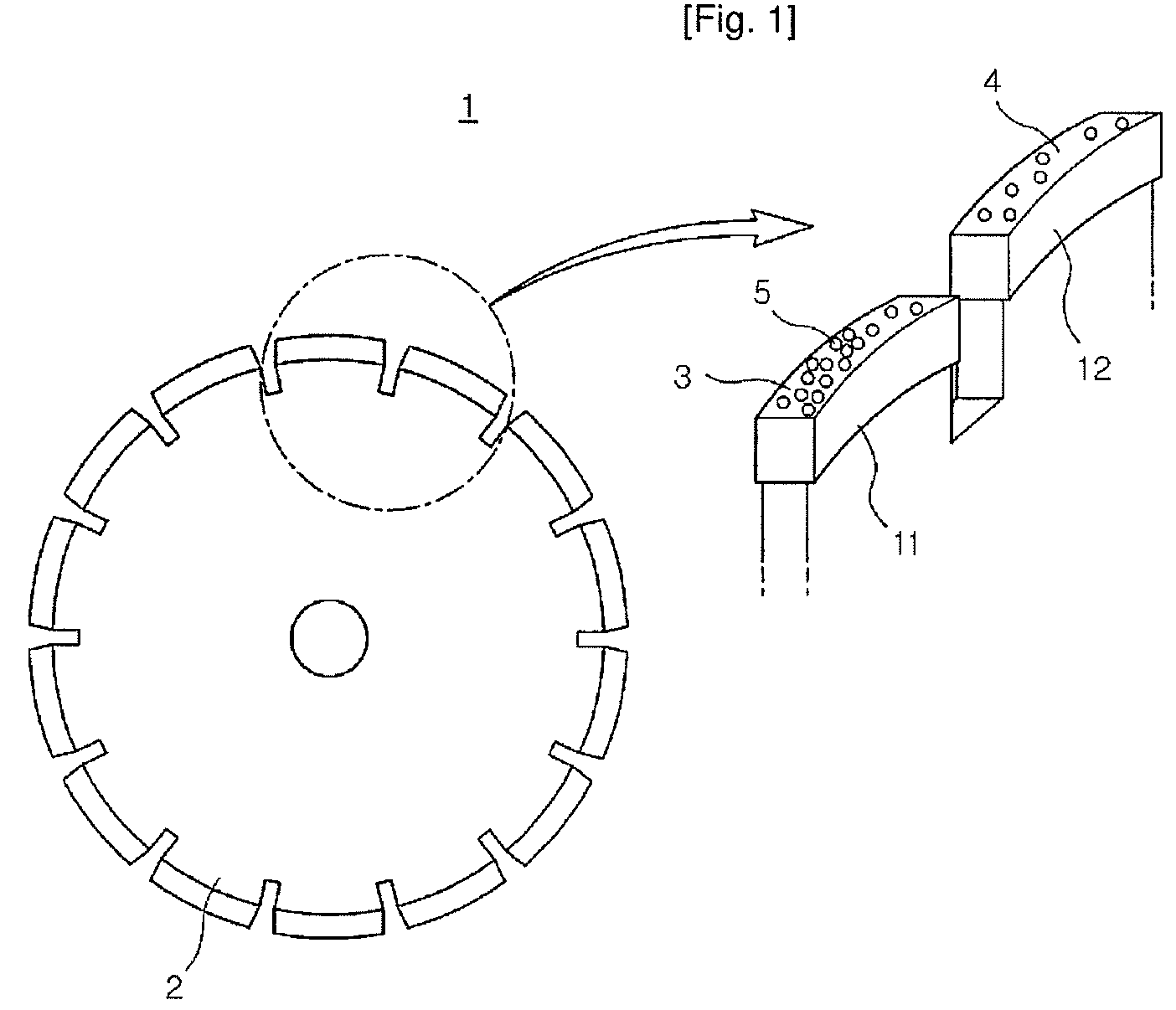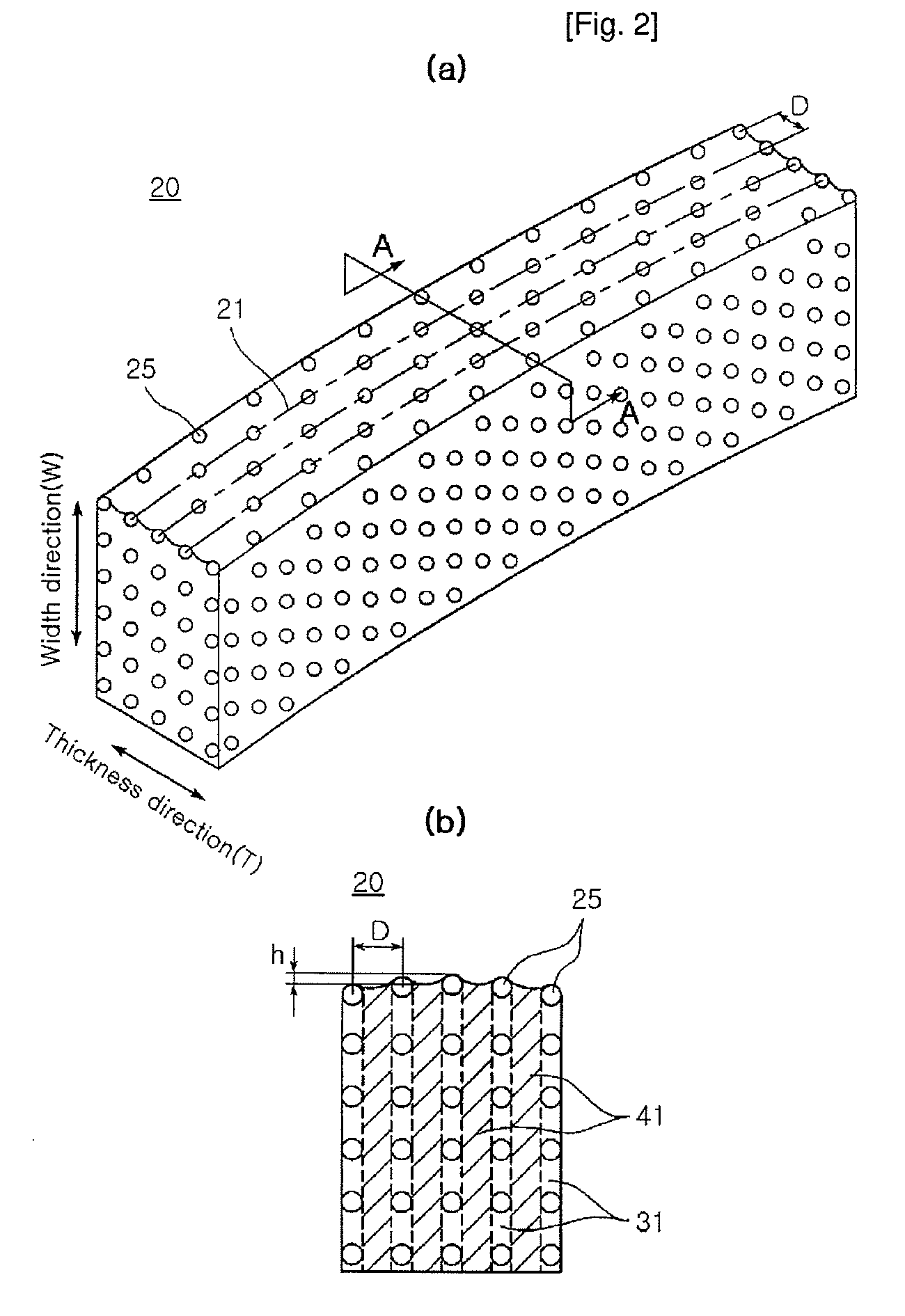Cutting segment for cutting tool and cutting tools
a cutting tool and cutting tool technology, applied in the field of cutting segments, can solve the problems of lowering the cutting rate, diamond particles are not uniformly distributed, and the cutting rate is contradictory to its useful life, so as to improve the cutting rate and the useful life
- Summary
- Abstract
- Description
- Claims
- Application Information
AI Technical Summary
Benefits of technology
Problems solved by technology
Method used
Image
Examples
example 1
[0127]One saw blade was manufactured according to the invention (Inventive product 1) and two saw blades were manufactured according to the prior art (Conventional products 1 and 2). The inventive and conventional saw blades were used to examine cutting rate and useful life of cutting segments in order to cut a granite work piece. The results are shown in Table 1.
[0128]Also, abrasion shapes of the cutting segments were observed.
[0129]Herein, Inventive product 1 used diamond particles as abrasive particles. The segments each had a length L of 40 mm, thickness T of 3.2 mm, width W of 10.0 mm, diameter R of 168 mm, and average diamond concentration of 0.8Conc. The diamond particles used were MBS-955 available from D.I corp. of U.S.A., with a particle size of US 40 / 50 mesh and an average diameter of 400.
[0130]FIG. 15 (a) illustrates shapes of cutting segments in Inventive product 1 according to this embodiment.
[0131]In Inventive product 1, diamond particles were arranged in six rows par...
example 2
[0142]In this Example, cutting segments shaped as in FIGS. 15 (b) to (f) were manufactured after varying a total number of diamond particle layers (rows on a cutting surface), number and thickness of thin blank sections, ratio of thin blank sections and diamond particle size, number and thickness of thick blank sections, ratio of thick blank sections and diamond particle size, thickness ratio of thick blank section and thin blank section, as shown in FIG. 2. Cutting rate and useful life of the cutting segments were observed and the results are shown in Table 3 below.
[0143]The shape of samples 1 and 2 of Table 2 is depicted in FIG. 15 (b), that of samples 3, 4 and 5 is depicted in FIG. 15 (c), that of samples 6 and 7 is depicted in FIG. 15 (d), and that of sample 9 is depicted in FIG. 15 (f).
[0144]Cutting rate and useful life of samples shown in Table 3 are comparative values when the conventional products having diamond particles randomly dispersed therein are assumed to have a valu...
example 3
[0159]24-inch saw blades (samples 10 and 11) were prepared by welding cutting segments to an outer peripheral surface of a metal core, in which the cutting segments had thick blank sections and thin blank sections or had thick blank sections and non-blank sections.
[0160]Sample 10 was a cutting tool only comprised of one type of cutting segments each having the thick blank sections and thin blank sections disposed therein, out of the cutting segment types according to the invention.
[0161]Sample 11 was a cutting tool having both types of cutting segments alternately welded, out of the cutting segment segments according to the invention. Herein, all the cutting segments included the thick blank sections and non-blank sections, but in the cutting segments, the non-blank sections of a trailing cutting segment were disposed in the thick blank sections of a leading cutting segment.
[0162]FIG. 16 (a) illustrates a cross-section of cutting segments used in Sample 10. FIG. 16 (b) illustrates a...
PUM
| Property | Measurement | Unit |
|---|---|---|
| width | aaaaa | aaaaa |
| diameter | aaaaa | aaaaa |
| width | aaaaa | aaaaa |
Abstract
Description
Claims
Application Information
 Login to View More
Login to View More - R&D
- Intellectual Property
- Life Sciences
- Materials
- Tech Scout
- Unparalleled Data Quality
- Higher Quality Content
- 60% Fewer Hallucinations
Browse by: Latest US Patents, China's latest patents, Technical Efficacy Thesaurus, Application Domain, Technology Topic, Popular Technical Reports.
© 2025 PatSnap. All rights reserved.Legal|Privacy policy|Modern Slavery Act Transparency Statement|Sitemap|About US| Contact US: help@patsnap.com



